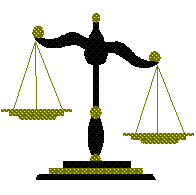FAQ about Serving Documents in
India


What is the Method of Service of Process or Documents in India from
the Courts of Foreign Countries who are signatory to the Hague Convention?
India is now a signatory to the Hague Convention on
the Service Abroad of Judicial and Extra-Judicial documents in Civil and
Commercial Matters. Therefore, the formal method for service in
India with effect from August 1, 2007 is pursuant to the Hague Convention
and declaration or special conditions mentioned by India in while signing
the Hague Convention.
The judgment is enforceable in the country
where documents are served. For examples, a Judgment given by a USA court is
enforceable in India, if the process is served under the Hague Convention,
for a case filed in a USA court.
It takes a longer time to serve under the Hague Convention procedure which
is formal and time consuming.
All the requirements of the Hague Convention must be met
while serving the documents, complaints, summons / subpoena in all Civil matters,
including Matrimonial, Divorce, Custody, family law and others; Commercial &
Corporate Matters. In addition, the special requirements declared by India
must be met. The declarations to the Hague Service Convention made by India include
the following conditions:
-
Documents for service must be written in the English language. This is a
good news for USA litigants who do not have to bear the costs of
translation.
-
Documents can not be served via mail.
-
Documents must be served indirectly via the proper authority in India.
-
Documents can not be served directly to the defendants in India by
private judicial officer.
In all kind of civil cases the service under the Hague Convention is
required including: Civil matters, including
Matrimonial cases, Divorce cases, Custody cases, family law cases, Commercial
cases & Corporate cases.
Generally, it takes longer to serve under the Hague Convention in India.
Click
here to Contact us for Process Service in India under the Hague Convention

Private process servers may serve documents in most
countries, whether a signatory to the Hague Service Convention, or not.
Service is normally handled in a manner similar to methods used in the
United States. Service of process via this methods generally meets the USA
federal or state rules only.
The advantages of Personal Service include less delays, as the completion of the service
is faster. Typically, it also costs less. The judgment is also enforceable judgment in the home country.
The Judgment may not be enforceable in India, depending upon the
matter.
A typical personal service in India takes less than one month, which is
shorter than service under the Hague Convention.
Click
here to Contact us for Personal Service in India

For a case filed in a court in the United States of America, the service
under the Hague Convention is generally required. Specially, if the judgment given by a
court in the USA (or any other foreign country which is signatory to
the Hague Convention), is to be enforced in India, then service under
the Hague Convention is required. However, since the service under the
Hague Convention takes a longer time, some people prefer to do both, Personal
Service along with the Service under the Hague Convention.
Click
here to Contact us for Process Service in India

-
Serving Summons & Complaints in India in
divorce cases filed in the USA -
Serving Summons & Complaints in India in
commercial and civil cases filed in the USA -
Serving Complaints in India
-
Serving Petitions in India
-
Serving Subpoena in India
-
Serving Divorce Papers in India -
Serving Other Judicial and Extra-Judicial
documents in Civil and Commercial Matters in India

We can do the following kinds Services:

1. India is now a signatory to the Hague
Convention on the Service Abroad of Judicial and Extra-Judicial documents in
Civil and Commercial Matters. India acceded to the Hague Service
Convention in late 2006 and the treaty is enforced in India
from August 1, 2007.
2. The Indian Code of Civil Procedure, Act of 1908
(CPC).
See also Process Serving in India -
Types

Q: I have filed for a divorce petition in
the USA. Is the divorce judgment given by a USA court enforceable in India?
A: This is a complicated legal question as each case has
peculiar facts and circumstances. It requires proper legal advice.
Therefore, please seek proper legal advice from a qualified attorney.
Q: I am an NRI. I was married in India.
Can I file for divorce in USA?
A: This is a complicated legal question as each case has
peculiar facts and circumstances. It requires proper legal advice.
Therefore, please seek proper legal advice from a qualified attorney.
Q: I am an NRI. I was married in India. I
live in the USA now. Do I need to file for divorce in India?
A: This is a complicated legal question as each case has
peculiar facts and circumstances. It requires proper legal advice.
Therefore, please seek proper legal advice from a qualified attorney.
Q: I am an NRI. I was married in the USA.
Can I file for divorce in India?
A: This is a complicated legal question as each case has
peculiar facts and circumstances. It requires proper legal advice.
Therefore, please seek proper legal advice from a qualified attorney.
Q: I am an NRI. I was married in India. I
have filed for divorce in USA. Do I need to file for divorce again in India?
A: This is a complicated legal question as each case has
peculiar facts and circumstances. It requires proper legal advice.
Therefore, please seek proper legal advice from a qualified attorney.
Q: Is a divorce degree given by a
court in the USA recognized in India?
A: This is a complicated legal question as each case has peculiar facts and
circumstances. It requires proper legal advice. Therefore, please seek
proper legal advice from a qualified attorney.
Q: Which are the major cities in
India?
A: Major cities of India include Agra Ahmedabad Ajmer Allahabad Amritsar
Aurangabad Bangalore Bharatpur Bhopal Bikaner Bombay Calicut Chandigarh
Chennai Cochin Coimbatore Darjeeling Dehradun Dharamsala Gurgaon Gwalior
Haridwar Hoshiarpur Hyderabad Indore Jaipur Jaisalmer Jalandhar Jodhpur
Kanchipuram Kaporthala Kodaikanal Kolkata Ladakh Lucknow Ludhiana Madurai
Madras Manali Mumbai Munnar Mysore Nainital Ooty Patiala Pune Pushkar Shimla
Trivandrum Udaipur and Varanasi.
Q: Which are the states of India?
A: The States of India are: Andhra Pradesh • Arunachal Pradesh • Assam •
Bihar • Chhattisgarh • Goa • Gujarat • Haryana • Himachal Pradesh • Jammu
and Kashmir • Jharkhand • Karnataka • Kerala • Madhya Pradesh • Maharashtra
• Manipur • Meghalaya • Mizoram • Nagaland • Orissa • Punjab • Rajasthan •
Sikkim • Tamil Nadu • Tripura • Uttaranchal • Uttar Pradesh • West Bengal.
The Union territories in India are: Andaman and Nicobar Islands • Chandigarh
• Dadra and Nagar Haveli • National Capital Territory of Delhi • Daman and
Diu • Lakshadweep • Pondicherry.
Click here to Contact us
 |


